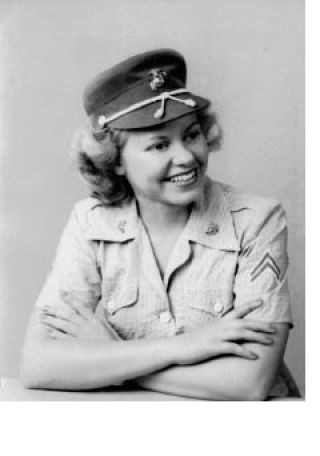“I tried too much. I had a naive belief in my own power. I was intense and had boundless energy, but no longer.” Amalia Driscoll said as she turned off classical music playing in her apartment. A delicate yellow teacup rested beside a massive biography of FDR, open to where she had been reading.
The year before her move to Lopez, Amalia gave a kidney to her son. “That’s when my other son was killed in an airplane crash.” With a cabin and island life, “I set up a garden and learned to keep the fire going. It was 1985 and I was by myself, alone, for the first time in my life.”
Born in Chicago 85 years ago, they lived coast to coast. “My family moved whenever a better job showed itself. My mother graduated in music when she was forty and my father went to night school and became an accountant. We lived in Chicago during the depression and we didn’t have a car. My sister and I felt very free as we rode the L train to lessons, the Art Museum and Field Museum by ourselves. Learning was the big thing in our family. We often ended dinner table arguments with the table covered with encyclopedias. I remember both of my parents were fiercely ambitious. They taught me that I could achieve anything if I worked hard enough and dared enough.”
Her blue eyes move to the side as she searches her memory. “My father got a job offer in New York City. We didn’t have any place to live yet so my mother took my sister and a restless me on a trip around the country in a 1940 Packard. We arrived in New York on July 4. Pearl Harbor was bombed in December and it changed our lives. The business division where my father worked closed and my parents went back to Chicago.”
Amalia was eighteen and working for the managing editor of Look Magazine while going to Columbia University at night. Her sister was at Julliard and teaching at the Bank School. Neither wanted to leave New York, so their parents set them up in an apartment with beds, lots of apple crates, and a grand piano.
“It was wartime and everyone I knew was in uniform. It is difficult today to explain how totally focused the country was on the war. On my 20th birthday I enrolled in the Women’s Reserve of the Marine Corps, officially known as the WRs but unofficially as the BAMS or broad-assed Marines.” She laughs. “I got out in December, 1945.”
After finishing her undergraduate work, she enrolled at Columbia Law School. There were five women in the entering class of 200. “I had the G.I. bill for books and tuition and $65.00 a month. The whole country was settling down and I married a fellow law student. I had my first baby between second and third semester. My second son was born on graduation day in June, 1950.”
“My husband was an intelligent, fascinating man and probably bi-polar.” She didn’t understand mental illness. No one talked about it then. Baffled by her husband’s inconsistency, the marriage floundered. Amalia and her children made many moves, sometimes with her husband, sometimes without. She obtained a teaching certificate. When the marriage finally ended, she had two young children and four teenagers. “My children defined my life. Sometimes I felt I just went from task to task.”
After teaching on Vashon Island, she commuted to Seattle where she worked with several agencies. “I took a statistics course. After all, I was called a data analyst in the Poverty Program office and I was the first woman vocational counselor with the Department of Labor and Industries.”
“I passed the Washington bar examination when I was 57 and opened my office in Pioneer Square in Seattle. I always wanted to do that. In five years I was broke and gave up that dream. I was too much of a social worker and that doesn’t bring in cash as a lawyer.” Her last job was with KCTS 9 “where my unusual ‘herstory’ didn’t startle anyone.”
After moving to Lopez, Amalia had time to travel. In 1990, she toured Yugoslavia and southeast Europe for ten weeks. Five years later, she spent an equal amount of time walking the trust trails of Great Britain. In 2001 she made an Elderhostel trip to India, “a gift from ‘an anonymous donor.’”
“I still believe that you can do whatever you want to do if you’re willing to pay the price. You just need to understand what the price is. Now I’m on the island until I can no longer maintain myself. Lopez is my rock.”
If you would like to suggest someone for Spotlight on Seniors please e-mail carmstrong@islandsweekly.net.



